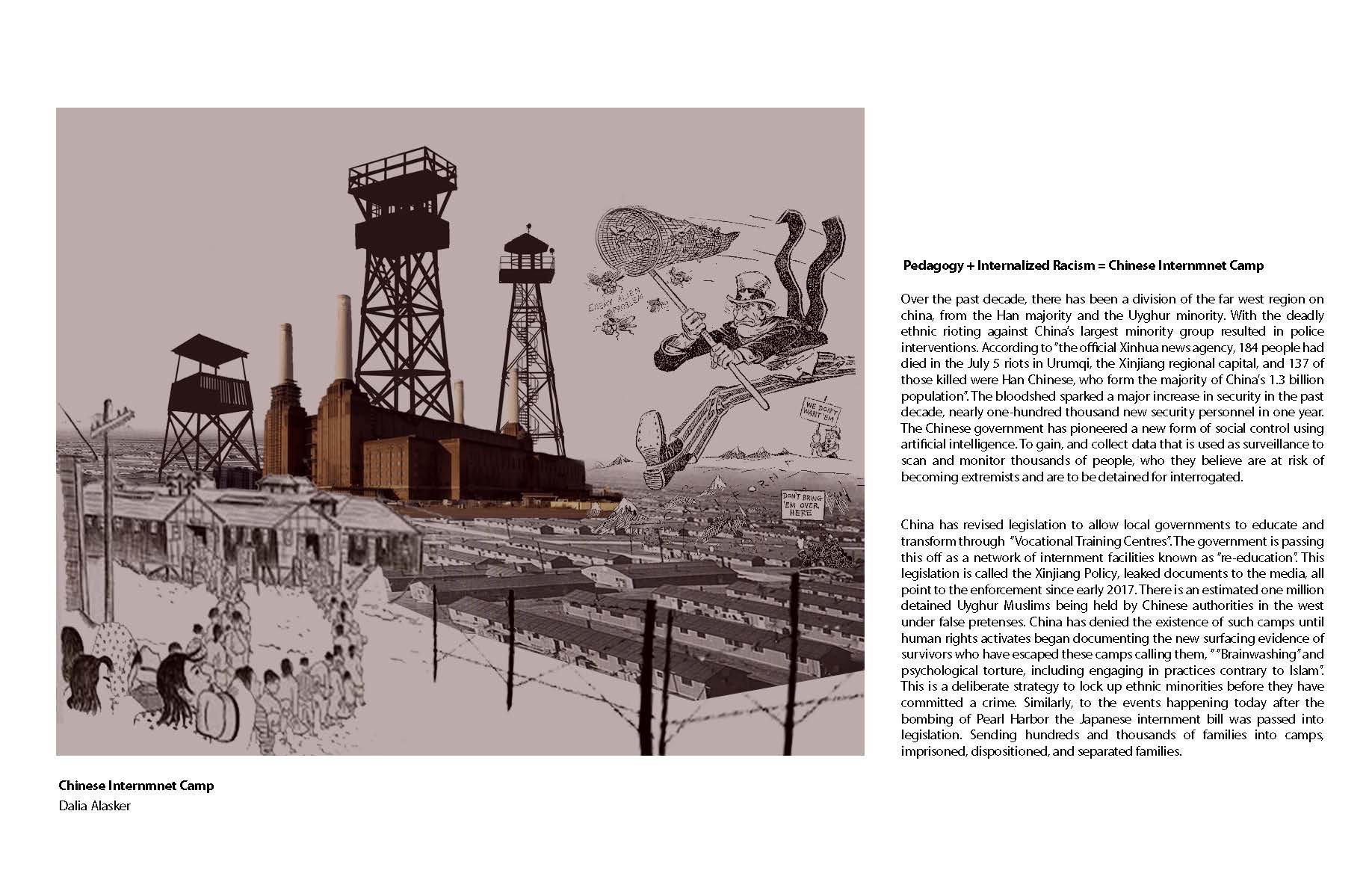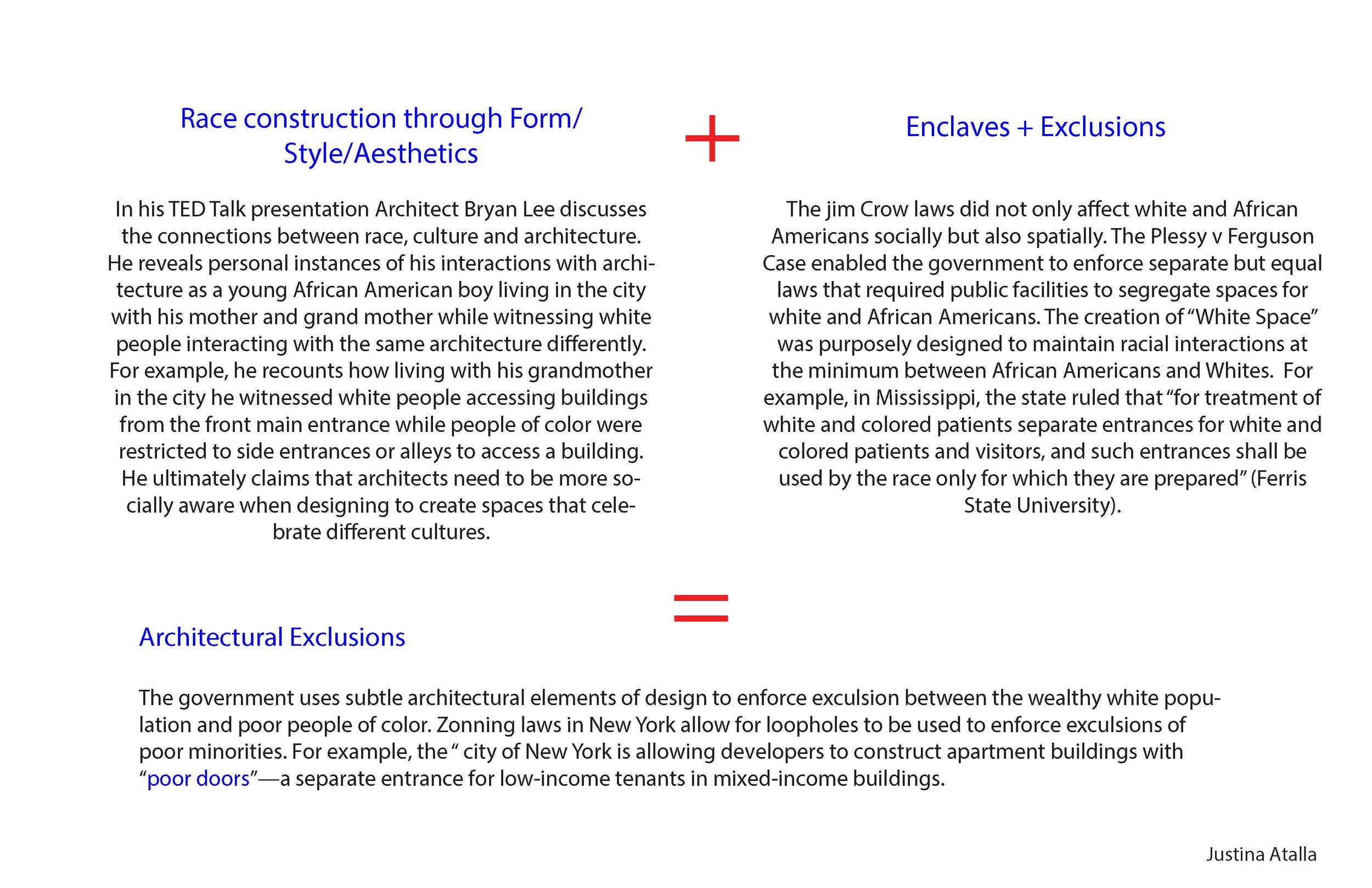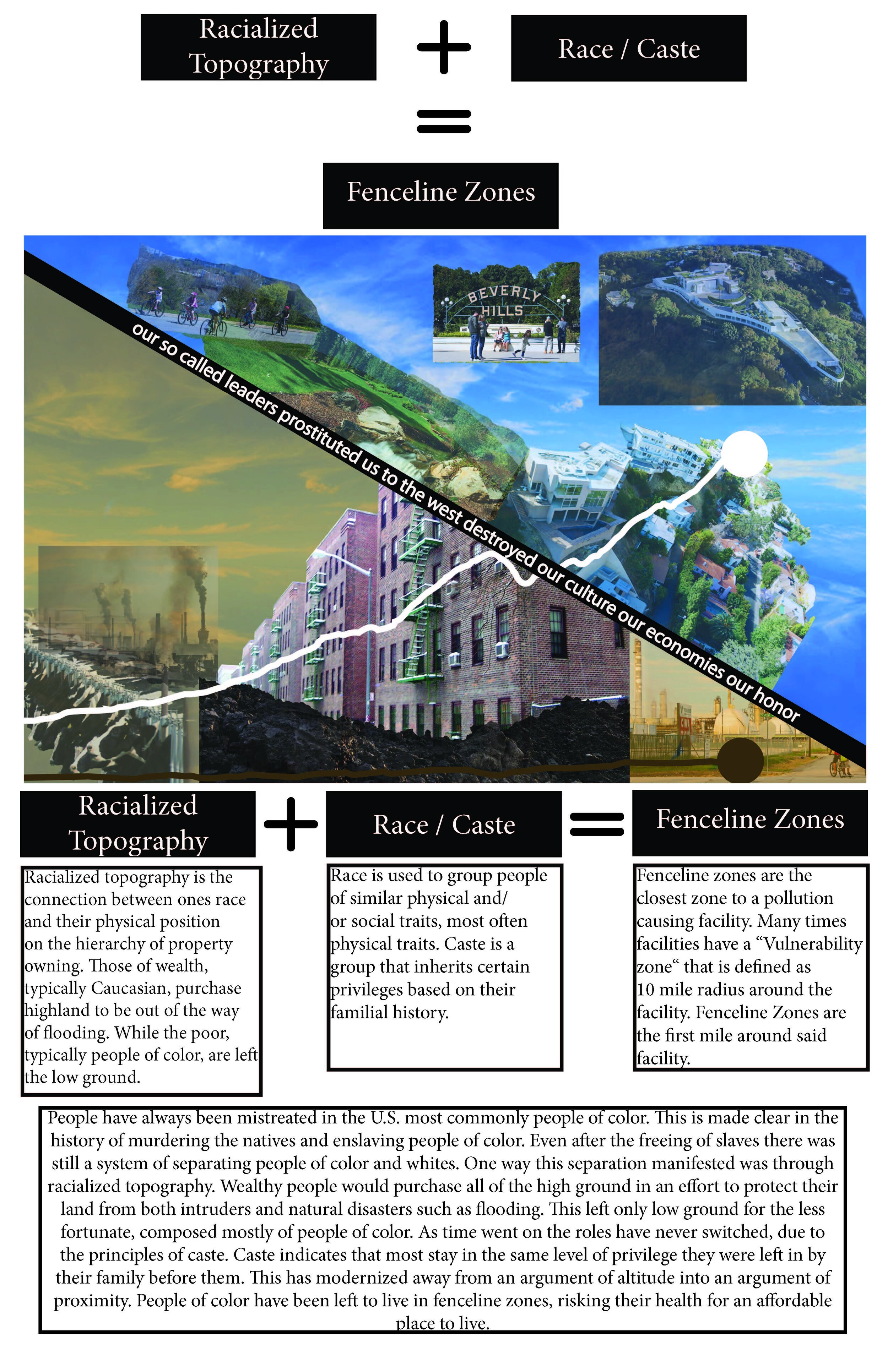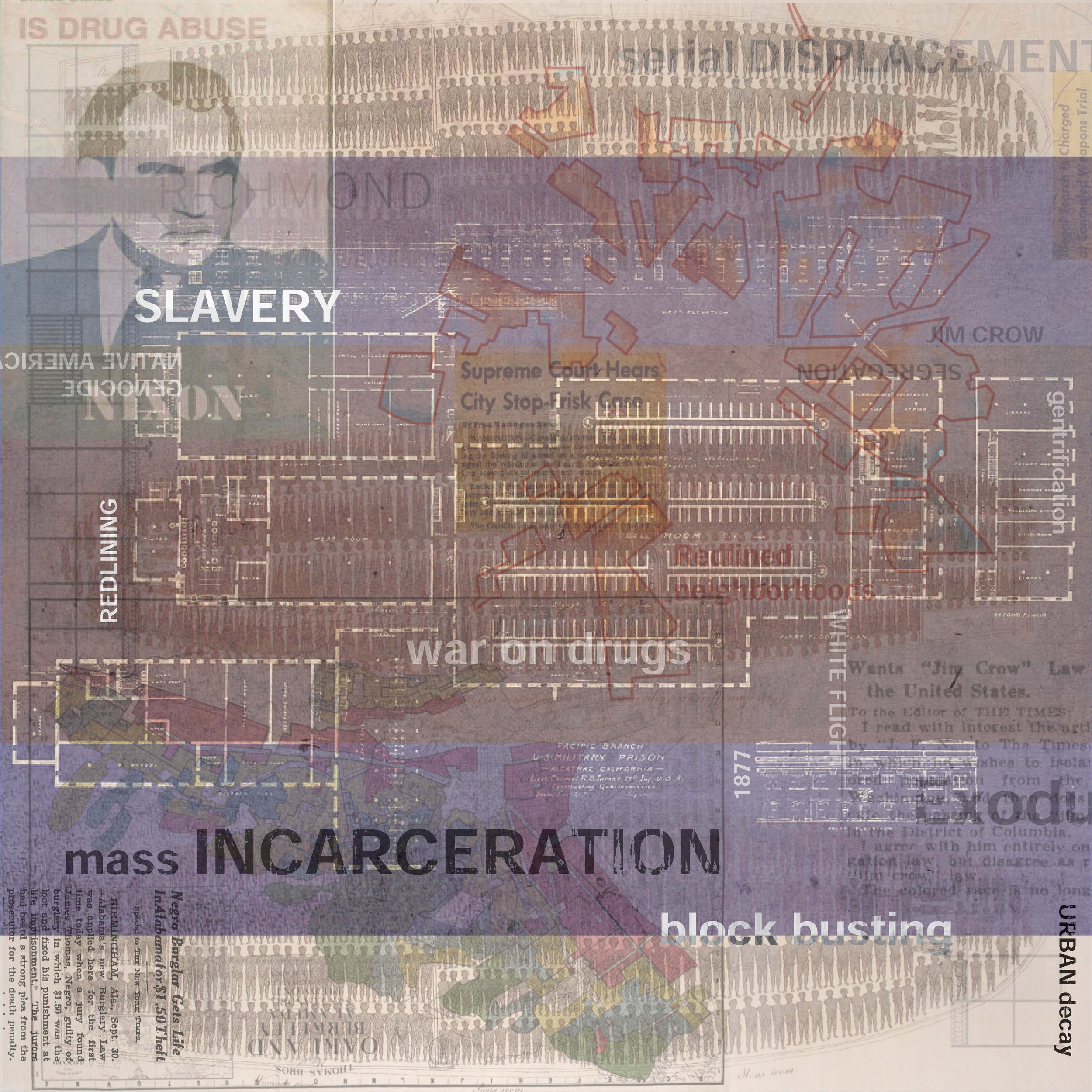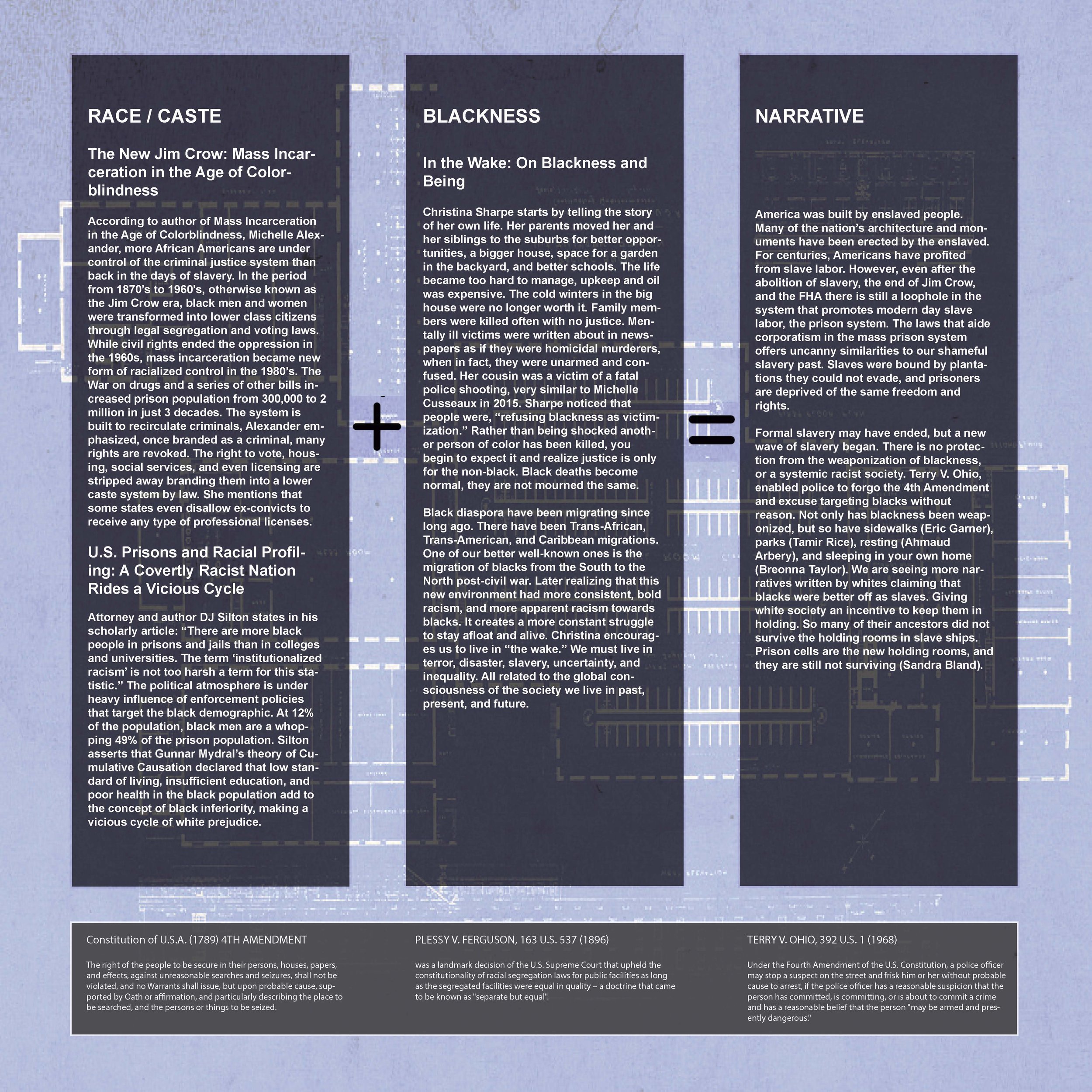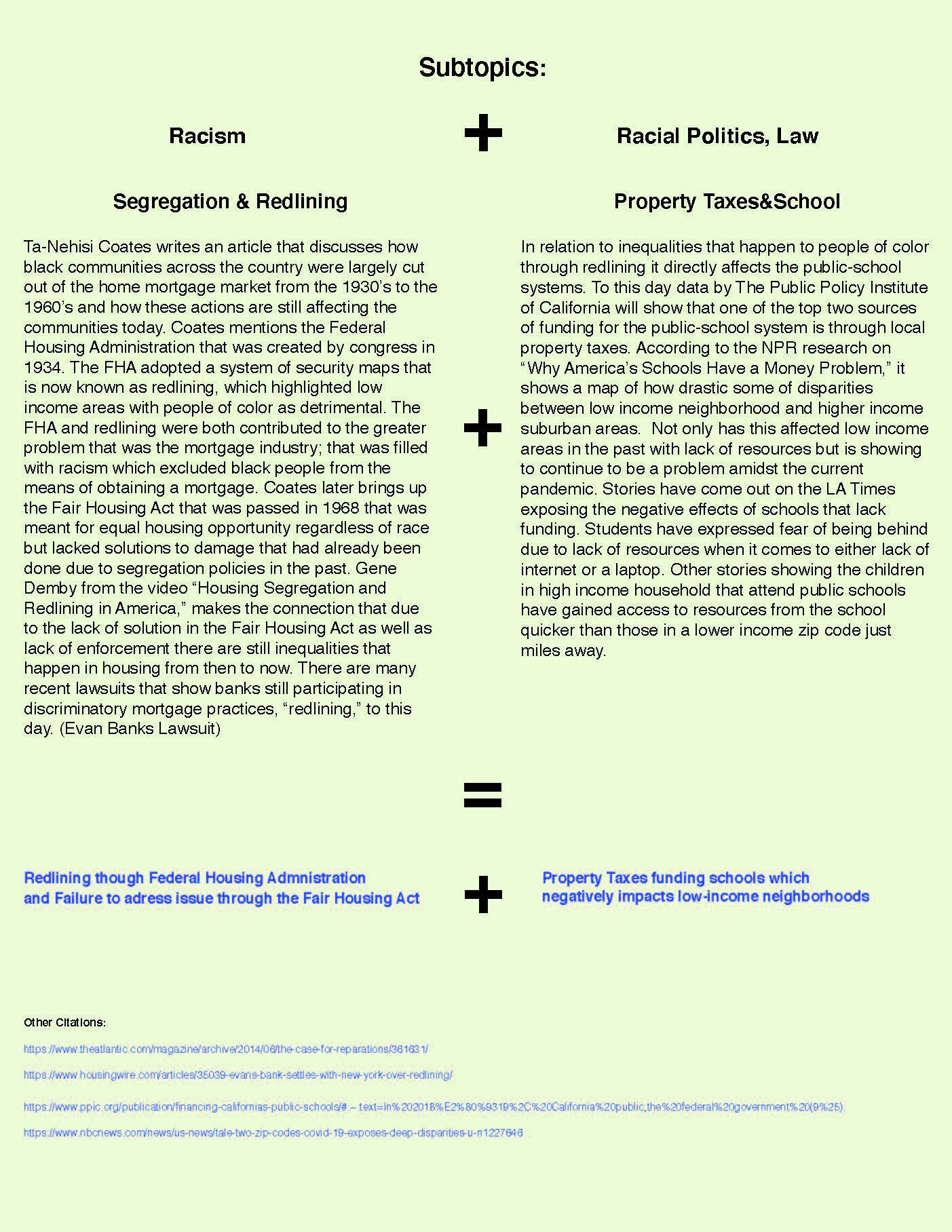NARRATIVE EQUATIONS
“What we face in our current day is not the classical racism of our forefathers’ era, but a mutation of the software that adjusts to the updated needs of the operating system.” -Isabel Wilkerson, Caste: The Origins of Our Discontents
Race is a social construct, unnatural, non-biological, which means that racial categories are invented and updated through social relations. Racial, hierarchical categories also overlap with other social identities–including, but not limited to gender, class and sexual orientation. To understand how these hierarchies – why particular groups are ‘raced’ in spatial terms, we investigate beyond discrimination, towards understanding the historical and nuanced institutional structures of privilege and marginalization supporting the making of the built environment and its policies. Students craft a narrative (a complex equation) that clearly explains the intersections at racism and the built environment that marginalize certain groups of people, and the results thereof.
The work is for students to select two or more resources from the subtopics under the RACE – SPACE THEORY topic; research the subtopics; understand the history, policies, laws and behaviors that enforce and uphold racism; understand how race and racism are constructed with spatial means, and on how space can be shaped by racism. The goal of this assignment is to illustrate how the ADDITION of the subtopics EQUALS the NARRATIVE.
The Narrative must prove how the current consequences stemming from historical policies and laws, continue to perpetuate SYSTEMIC AND SPATIAL RACISM, providing PRESENT-DAY policy or legislative example(s) that actively obstruct equity, spatial & economic mobility, and access to pubic goods, etc. - rooted in CONSTRUCTED RACIAL IDENTITY (concealed or explicit). The narrative must not be a rote, academic, theoretical, regurgitated summary of the research; it must be the student’s conclusive understanding and perspective of/on the topics, supported by facts. Students’ lived experience have worth, have value, and are essential to their analysis. Students further their research to find and understand current policies or pending legislations that violate civil rights, increase sanctions for exercising civil rights, erode constitutionally-protected activities, diminish quality of life, block pursuit of happiness, criminalize civic movement, or enhance the privilege of one group over another.


